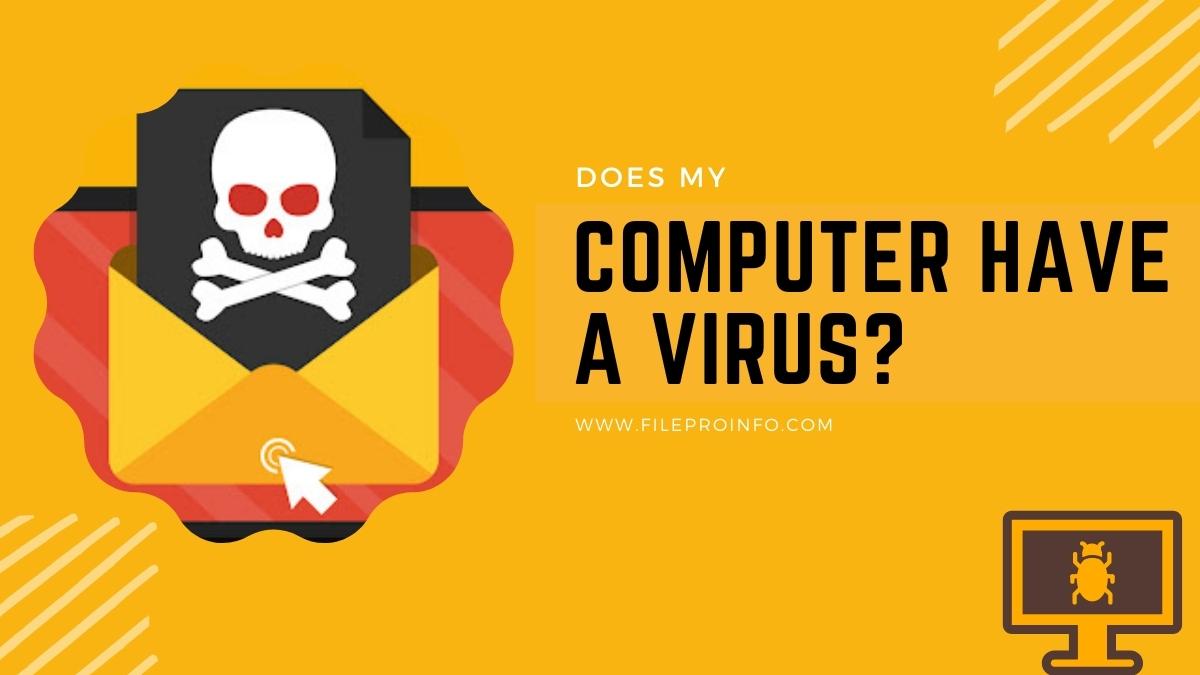
Computers have changed the way that we live. We’ve become incredibly reliant on personal devices, whether it’s a laptop, smartphones, or even tablets. It’s almost impossible to find a household that doesn’t have at least one type of device in our modern society.
These devices have become incredibly important to our lives. We can use them to work from anywhere in the world, keep ourselves entertained, or even send messages to our family and friends in a matter of seconds. In other words, they’ve brought us a ton of great functions and abilities.
However, personal devices have also opened the door to a new kind of threat – viruses. It’s important to learn more about these virtual threats because computer viruses are dangerous. If you don’t know how to keep your devices safe against viruses, there’s a good chance that you may encounter one in the future. Make sure to read to the end of the article to get a good understanding of what viruses are, how they work, and how you can ensure the safety and security of your device.
What is a Computer Virus?
Computer viruses are a form of malicious software that can be installed on your device. Malicious software, also known as malware for short, is designed to damage your device or steal your information, and it comes in many different forms – with viruses being just one example.
Much like their biological counterparts, computer viruses can transmit from one device to another. They can do this in different ways, such as attaching themselves to emails or physical media devices such as CDs and USBs for example.
Computer devices are man-made, which means that the cybercriminal who builds the virus can program it to do whatever they want it to. This is why you can find different types of viruses with some just being annoying, and others genuinely dangerous. You never know which viruses are the dangerous ones though, so it’s always best to treat every virus with caution and take them seriously.
There’s a wide range of different viruses out there, but for the most part, you’ll find that they all aim to do some form of damage to your device. Whether it’s simply deleting or corrupting files on your device or destroying your entire device’s operating system, it’s always a good idea to make sure that you have the right security measures in place to remove them from your device.
How to Identify a Virus
So, how can I spot a virus on my device? Some viruses won’t go under the radar. You’ll be bombarded with hundreds of pop-up ads every minute, causing your computer to freeze and crash. These types of viruses are mostly just around to cause frustration for the victim though.
It’s the more dangerous viruses that tend to go under the radar as they need to reside on the device to cause as much damage as possible. Finding these viruses can be much more difficult, but luckily, not impossible. There are a few tell-tale signs to keep an eye out for if you suspect your device of being infected with a virus.
Here are some of the red flags that indicate that your device might have a virus:
- The device is running much slower than usual
- Files are disappearing
- New files are appearing
- Pop-up ads
- The device is freezing and crashing
- Web browsers or other applications open by themselves
You might be able to identify a virus using one of the above symptoms, but it’s not always easy to spot these signs. It’s important to ensure that your device is as secure as possible with the correct cyber security measures in place if you want to avoid falling victim to malware such as viruses.
How do viruses get onto your devices?
Understanding how a virus might make its way onto your device will help you to avoid them in the future. The main method that cybercriminals use to install viruses, and any other kind of malware on your device is through phishing scams. Phishing is when cybercriminals lure victims to interact with an illegitimate link on the internet through the use of manipulation and deception – this is also known as social engineering. Phishing scams can be used in the form of emails, social media messages, and posts, as well as links disguised as images and icons on websites.
How to Keep Your Devices Safe
Keeping your device secure is incredibly important. Since cybercriminals are constantly developing their techniques and strategies used in phishing scams, they are becoming more and more difficult to spot. It’s not always possible to avoid falling victim to one of these cyberattacks, so having a safety net is essential.
The essential cybersecurity tool that you need to install on your device is premium antivirus software. Antivirus software will constantly scan your device for any viruses or other forms of malware. If anything has been detected on your device, the software can remove the malware from your device.
There are a few things to keep in mind when you install antivirus software on your device though. Firstly, you must install premium antivirus software on your device and avoid the free ones. Free cybersecurity software comes with some drawbacks that will influence security and privacy.
You also need to look for antivirus software that has extra features available. Some antivirus software is equipped to detect phishing scams for example. The software will scan emails and links before you open them to check whether they are safe or not. This will act as an early warning system for you to avoid any potential fraudulent links.
Once the antivirus software has been installed on your device you will be safe from malware. However, you must make sure to keep your software updated at all times. Software updates are sent out to fix any flaws that have been detected in the software, and they often also include extra security features that are used to protect your device against new strategies employed by hackers.
Lear more from technology and read 5 Signs Of A Phishing Email.





One Comment